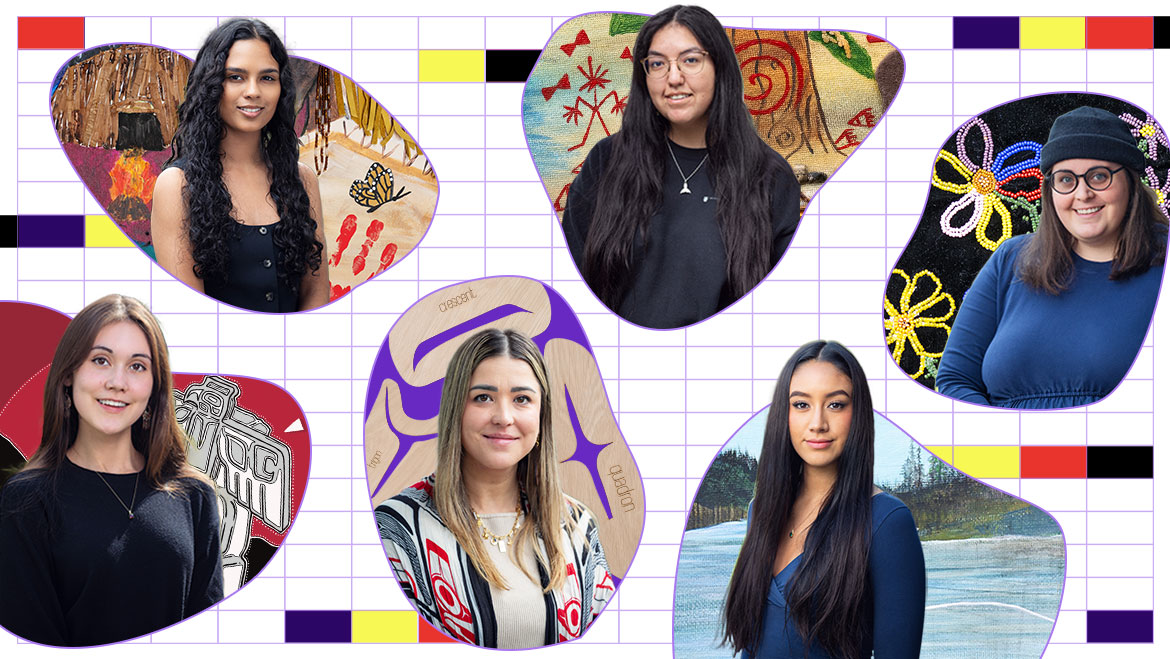We asked four UBC Faculty of Arts professors from Political Science, Islamic Studies and Gender Studies, and Sociology, to weigh in on what Trump’s victory means for Canada.


“Canada has to cultivate alternatives – in Asia, Europe, and Latin America.”
The Trump victory is a reminder that Canada’s interests are best served by maintaining a respectful distance from the mercurial giant to the south. Canadian policymakers know full well that while our relationship with the United States is mostly cooperative it is also fraught with potential conflicts. We are thus best served by working through robust institutions and seeking cooperative solutions wherever possible—often not at the level of high politics but at the level of the everyday interactions that sustain interdependence.
At the same time, Canadian governments have an obligation to seek non-agreement alternatives – other markets, other alliances, other institutional mechanisms through which we can defend our national interests. The Trudeau government should approach the Trump government in a businesslike manner, willing to cooperate for mutual gain, but not succumbing to the illusion that Canadian interests are served by currying favour with whoever happens to be in power. In the short run, Canada needs to avoid conflict, keep below the radar, and be prepared for complex negotiations across a range of inter-related files.
Trump has indicated his intention to renegotiate or withdraw from NAFTA. His proposal is slightly ludicrous, and it is far from clear what he thinks he can achieve by means of renegotiation or abrogation. That said, there are problems with the NAFTA, and, in principle, Canada should to be open to renegotiation. After all, the U.S. can always act unilaterally. If the U.S. decides to re-open NAFTA, the Canadian government must be prepared to place its own irritants on the table. Of course, the major bilateral conflict is likely to be with Mexico. For Canada, the winning strategy is generally to insist that nothing that is done between the U.S. and Mexico should place Canada at a disadvantage, and any new concessions that Canada might have to make must be in return for comparable gains. For this strategy to be credible, however, Canada has to cultivate alternatives—in Asia, Europe, and Latin America.
Ayesha S. Chaudhry, Associate Professor of Islamic Studies and Gender Studies

“We must recognize the deep rooted racism in our nation that is reflected in its institutional structures, or else the beast of racism will consume us all.”
The main lesson of the 2016 U.S. election is that race is central to political decision making. And further, that racism and xenophobia are so compelling to a majority of white Americans, that white voters voted against their gender, political, religious and class interests for the purpose of supporting their racial interests. That is to say, racism is destructive for the very groups who hold onto it most fiercely.
This is where the lessons of a Trump Presidency are most relevant for Canada. Many Canadians have an overly confident attitude about how much better Canada is than America when it comes to issues of race. We are multicultural, so we value different cultures, unlike the Americans and their melting pot. Despite the overt rhetoric of multiculturalism, a 2016 CBC-Angus Reid Poll revealed that 68% of Canadians believe that minorities are not doing enough to assimilate into “Canadian” society.
We live in a nation that supports structural inequalities of race in ways big and small. Even as we boast of an ethnically diverse Senate – which we are rightfully proud of -, we also must confront the fact that our prison population is growing fast with people of colour as the largest number of inmates in our prisons. For example, black Canadians make up 2.9% of the Canadian population but 10% of the prison population. Between 2005 and 2015, the black population of federal prisons increased by 69%. In the same time period, the Aboriginal population grew by over 50%. This means that people of colour are institutionally discriminated against and criminalized in Canada. The election in the U.S. should be a lesson for Canadians. We must be vigilant, honest and self-critical. We must recognize the deep rooted racism in our nation that is reflected in its institutional structures, or else the beast of racism will consume us all.


“If you have weak parties, sooner or later you get Donald Trump.”
My observations are not on what a Trump presidency means for Canada but rather on lessons we should draw from the manner of his selection. For both the Democratic and Republican parties, nomination processes combine two elements in a potentially toxic way; this year the toxins rose to the surface. U.S. parties differ from each profoundly, more than any pair of parties seriously contesting for power anywhere. When one or the other controls both Congress and the White House, it can tilt policy dramatically. When parties divide the branches, each—the Republican party especially—resists compromises that reflect the other party’s control of the other branch. Polarization and paralysis too often go together.
Many infer that this testifies to the perversity of party politics, and that parties should be weakened. Nothing could be further from the truth. What allows this to happen is not the strength of U.S. parties but their weakness. It is increasingly difficult for Congressional leaders to bring their followers along. Parties’ pursuit of the White House can be compromised by the same forces that beset Congressional leaders. And those forces exemplify the weakness at the core of the parties: nomination for Congressional office is controlled by self-selected policy extremists. The reelection prospects of most sitting Representatives are more at risk from insurrection on their ideological flank than from the other party.
So far, Canadian parties have mainly resisted these tendencies. They manage to protect their “brands” at the same time as they seem able to focus on the long game. I worry that reform efforts risk undermining the ability of party elites to keep doing this. If you have weak parties, sooner or later you get Donald Trump.


Wendy D. Roth, Associate Professor of Sociology
“Trump’s presidency means that Canadians must be ever vigilant to ensure that similar expressions of racism and xenophobia are not given outlet here.”
Trump’s candidacy has exposed an underbelly of racism and xenophobia in the American people that seems to have only been waiting for an outlet. But the U.S. is not an isolated case; it’s part of a larger trend of right-wing populism seen in Britain and parts of Europe. Canadians like to emphasize how different they are from Americans, particularly on race relations and acceptance of foreigners, but similar voices are rising up in Canada. Kellie Leitch, one of the candidates vying for the Conservative leadership, wants to ensure that “every visitor, immigrant, and refugee will be screened for Canadian values.”
And as much as we laud our multiculturalism, research shows that Canadians express similar levels of prejudice to Americans. Views of racial essentialism are particularly worrying – that is, the belief that races are genetically distinct at their core and have different skills and abilities. These beliefs have fuelled ethnic and racial violence throughout history, including forced sterilizations, eugenics, and genocide. In my research on a sample of White, native-born Americans, I found a very small but significant increase in racial essentialism over the early part of Trump’s presidential campaign, but I also found higher levels of racial essentialism in a comparable sample of Canadians than among Americans. Trump’s presidency means that Canadians must be ever vigilant to ensure that similar expressions of racism and xenophobia are not given outlet here.
What will a Trump presidency mean for immigration in Canada? It is likely that Canada will receive more immigrant applications, not just from Americans seeking to flee a Trump presidency but from people elsewhere in the world who will be less inclined to move to America. I expect to see more applicants from Mexicans and Muslims, two groups Trump has particularly targeted, including immigrants who have settled in the U.S. and no longer wish to remain. This may put strain on Citizenship and Immigration Canada, but it won’t have a noticeable impact on average Canadians unless the ministry decides to increase the number or type of applicants it accepts. A more immediate impact on Canadians is that it may be harder for them to work in the United States, if Trump makes good on his promise to repeal NAFTA. Canada may also see an increase in international student applications. In my research on international students at UBC, some explained that they chose to study in Canada partly because of concerns of racism in the U.S. Those concerns are likely to grow. And with programs like the Canadian Experience Class visa facilitating the immigration of former international students who get work experience in Canada that could translate into additional higher-skilled immigrants.


